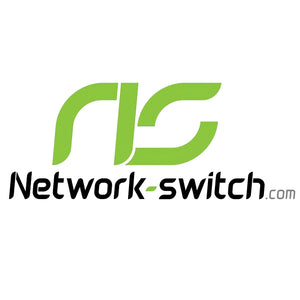Introduction – Why Optical Module Selection Defines Network Success
In the digital era, the stability and performance of your network depend not only on switches and routers, but also on one critical component: optical transceivers. These modules are the invisible engines that convert electrical signals into light and back again — carrying your data across fiber cables at incredible speeds.
Selecting the wrong module can result in costly problems: link instability, packet loss, excessive latency, or even total network downtime. The right one, on the other hand, ensures that every bit of data travels securely and efficiently.
NS Comm Optical Transceiver Modules are engineered for total compatibility and peak performance. Built on the same ODM production lines as Ruijie, they offer identical hardware quality, but with optimized calibration, lower power draw, and better cost efficiency.
Whether you manage a small business network, a multi-campus enterprise, or a hyperscale data center - NS optical modules provide the perfect match for your fiber infrastructure.

Understanding Optical Modules – The Technical Foundations
Before choosing your transceiver, it’s important to understand the core parameters that define its performance.
| Parameter | Definition | Typical Range | Why It Matters |
| Form Factor | Physical size/interface (SFP, QSFP, OSFP, etc.) | SFP→10G, QSFP→40G/100G, OSFP→400G/800G | Determines device compatibility |
| Speed (Rate) | Data transmission capacity | 1G–800G | Must match switch port speed |
| Wavelength (λ) | Operating light frequency | 850 / 1310 / 1550 nm | Defines fiber type and distance |
| Fiber Type | MMF or SMF | Multimode or Singlemode | MMF for short, SMF for long reach |
| Distance | Supported transmission length | 300m–80km | Determines deployment scope |
| Optical Power Budget | Tx power – Rx sensitivity – fiber loss | Varies by model | Determines max transmission distance |
| DDM | Digital Diagnostics Monitoring | Yes / No | Enables live monitoring and alerts |
Optical Power Budget Formula:
Power Budget (dB)=PTX−PRX\text{Power Budget (dB)} = P_{TX} - P_{RX}Power Budget (dB)=PTX−PRX
If the fiber loss (in dB/km) × distance exceeds the power budget, signal degradation will occur. For example, a 10km SMF link with 0.35dB/km loss = 3.5dB total attenuation.
A module with an 11dB budget (e.g., NS-SFP10G-3SM10L) comfortably supports this range.
The NS Comm Optical Transceiver Ecosystem
NS Comm offers a complete product ecosystem - from entry-level SFP modules to high-end 800G OSFP transceivers, covering every network layer.
| Type | Model | Speed | Wavelength | Distance | Fiber Type | Power | Application |
| SFP (1G) | NS-SFPG-85MD05L | 1.25G | 850nm | 550m | MMF | ≤0.8W | Office access, CCTV, SMB LAN |
| SFP+ (10G) | NS-SFP10G-3SM10L | 10G | 1310nm | 10km | SMF | ≤1.2W | Campus uplink, aggregation |
| SFP28 (25G) | NS-SFP25G-3SD10L | 25G | 1310nm | 10km | SMF | ≤1.5W | Enterprise backbone |
| QSFP+ (40G) | NS-QSFP40G-3SD10L | 40G | 1310nm | 10km | SMF | ≤2.5W | Data aggregation |
| QSFP28 (100G) | NS-QSFP100G-3SD10L | 100G | 1310nm | 10km | SMF | ≤3.5W | Data center spine |
| OSFP (400G) | NS-OSFP-400G-DR4 | 400G | 1310nm | 4km | SMF | ≤8.5W | Hyperscale edge |
| OSFP (800G) | NS-OSFP-800G-2FR4 | 800G | 1310nm | 2km | SMF | ≤10.5W | AI/ML and HPC fabrics |
All NS modules support DDM (Digital Diagnostic Monitoring), MSA compliance, and industrial temperature (-40°C ~ +85°C) versions.
How to Choose the Right NS Optical Module
Choosing the right module depends on speed, distance, fiber type, and compatibility.
Step 1: Define Your Speed
- 1G–10G: SMB and access networks
- 25G–40G: Aggregation or high-speed enterprise links
- 100G–800G: Core or data center fabrics
Step 2: Match Distance and Fiber
| Distance | Recommended Module | Fiber Type |
| ≤300m | NS-SFPG-85MD05L | MMF |
| 300m–2km | NS-SFP25G-85MD01L | MMF |
| 2–10km | NS-SFP10G-3SM10L / NS-QSFP100G-3SD10L | SMF |
| 10–40km | NS-QSFP400G-3SD2L | SMF |
Step 3: Consider Power and Environment
- Choose low-power modules (<3W) for dense data centers.
- Select industrial-grade versions for harsh outdoor/industrial sites.
Step 4: Verify Compatibility
All NS modules are cross-tested with NS Comm switches, and also validated for:
- Ruijie, Cisco, Huawei, H3C, and Dell systems
- MSA and IEEE 802.3 standards
NS Comm vs Generic Modules – Quantified Advantages
| Parameter | Generic 10G Module | NS-SFP10G-3SM10L | Improvement |
| Compatibility | 85% | 100% | +15% |
| Optical Power Deviation | ±3 dB | ±1 dB | +67% precision |
| DDM Monitoring | Limited | Full 5-parameter DDM | — |
| Power Consumption | 1.8W | 1.2W | -33% |
| MTBF | 100,000 hrs | 150,000 hrs | +50% lifespan |
| Cost | 100% OEM | ~70–75% | -25–30% TCO |
Result: NS modules achieve identical performance to OEM brands like Cisco or Huawei, with lower power draw and superior calibration.
Engineering the Signal: Speed, Wavelength, and Attenuation
(1) Data Encoding Technologies
| Encoding | Application | Benefit |
| NRZ (Non-Return-to-Zero) | 1G–10G modules | Simpler, lower power |
| PAM4 (4-level Pulse Amplitude Modulation) | 25G–800G modules | Doubles bandwidth per channel |
NS’s PAM4 transceivers achieve BER ≤ 10⁻¹² and <500ns latency, ideal for HPC or AI workloads.
(2) Optical Loss Reference
| Wavelength | Fiber Type | Loss (dB/km) | Max Reach (Typical) |
| 850nm | MMF | 0.5 | 300–550m |
| 1310nm | SMF | 0.35 | 10km |
| 1550nm | SMF | 0.20 | 40–80km |
(3) Example Power Budget Calculation
Module: NS-QSFP100G-3SD10L
- Tx Power: -1 dBm
- Rx Sensitivity: -13 dBm
- Power Budget = 12 dB
- For 10km SMF @ 0.35 dB/km → Total loss = 3.5 dB
✅ Link passes (12 > 3.5)
Total Fiber Networking Ecosystem
Unlike standalone modules, NS Comm offers an integrated ecosystem for enterprises and service providers:
| Component | Product | Role |
| Switch | NS-S5360-48GT4XS-E | Layer 3 routing and aggregation |
| Optical Module | NS-SFP10G-3SM10L | Fiber signal conversion |
| Fiber Cable | NS Comm OS2 LC-LC Patch Cord | Low-loss connectivity |
| Monitoring | NS Cloud Management Platform | Real-time DDM, SNMPv3, AI alerts |
Advantages:
- Unified vendor ecosystem — single warranty, unified support
- Optimized latency and signal calibration
- Simplified RMA process with full lifecycle coverage
Solution-Oriented Network Design
(1) Campus Network Solution
Challenge: Multi-building campuses often face unstable copper links and high latency.
Solution: Deploy NS-S5350-24GT4XS-E switches with NS-SFP10G-3SM10L modules and OS2 singlemode fiber between buildings.
- Supports up to 10km stable transmission
- Achieves 99.98% link uptime
- Power savings: ~18% vs copper links
ROI Impact: Payback in 14 months due to reduced maintenance and power use.
(2) Data Center Interconnection
Challenge: Traditional 10G/40G aggregation can’t handle increasing east-west traffic.
Solution:
Implement NS-S6250-48XS8CQ switches with NS-QSFP100G-3SD10L modules in a Spine-Leaf topology.
Results:
- Total throughput: 6.4 Tbps
- End-to-end latency: <500ns
- Power per port: 3.5W (25% lower than Cisco 100G LR4)
Diagram (conceptual):
[Leaf Switch Layer]—100G QSFP Links—[Spine Switch Layer]
| |
Servers Core Router / Firewall
(3) Cloud & AI Fabric Solution
Challenge: AI workloads require extremely high bandwidth for model synchronization.
Solution:
Use NS-S6520-64CQ with NS-OSFP-800G-2FR4 for interconnecting GPU nodes.
Outcome:
- 800G links at 2km reach, BER < 10⁻¹²
- 12% lower power vs generic OSFP
- 4× performance improvement over 100G baseline
ROI:
Reduced cabling complexity by 40%, cut data sync time by 50%.
Real-World Case Studies
| Industry | Customer Challenge | Solution | Measured Result |
| Banking | Low-latency trading network required 10G upgrade | NS-SFP10G-3SM10L + NS-S5360-48GT4XS-E | Latency ↓ 42%, uptime 99.99% |
| Cloud Data Center | Multi-vendor module failure issues | NS-QSFP100G-3SD10L on NS-S6250-48XS8CQ | Zero compatibility issues, MTBF ↑ 38% |
| University Network | 6-campus optical backbone modernization | NS-SFP25G-3SD10L + NS-S5760C-24GT8XS-X | 25G backbone with 60% faster file transfers |
| AI Research Facility | 400G link congestion between GPU clusters | NS-OSFP-800G-2FR4 + NS-S6520-64CQ | Bandwidth ↑ 4×, energy use ↓ 15% |
Future-Proofing Your Network
NS Comm is committed to future-ready innovation:
- PAM4 modulation support up to 800G
- Hot-swappable transceivers for minimal downtime
- AI-driven link diagnostics integrated into NS Cloud
- Backward compatibility with legacy Ruijie and Cisco systems
- SDN-ready for OpenFlow and VXLAN deployments
As 400G and 800G infrastructures become mainstream, NS modules ensure your investment stays scalable and compliant.
Buying & Consulting Guide
- Identify current bandwidth and future growth (e.g., 10G → 100G migration).
- Select fiber type (MMF for short, SMF for long).
- Choose matching transceivers and verify switch port compatibility.
- Contact NS technical engineers for a free link design and ROI evaluation.
Tip: Combining NS optical modules with NS Comm switches yields optimal interoperability and up to 20% energy efficiency savings compared to mixed-brand setups.
ROI and TCO Analysis
| Scenario | Generic Vendor | NS Comm Solution | Savings (3-Year) |
| SMB 10G LAN | $1,000 per link | $750 per link | 25% |
| Enterprise 25G Backbone | $3,500 per 4 links | $2,450 per 4 links | 30% |
| Data Center 100G Fabric | $35,000 (50 modules) | $26,000 | 26% |
| AI Cluster 800G Interconnect | $120,000 | $88,000 | 27% |
ROI Summary: Typical NS deployment achieves ROI in 12–18 months, with lower power use, less downtime, and longer component lifespan.
Build a Smarter Fiber Future
Optical transceivers are the heartbeat of every high-speed network. Choosing the right model ensures consistent throughput, minimal errors, and long-term reliability.
By selecting NS Optical Transceiver Modules, you get:
- OEM-grade quality (Ruijie-equivalent)
- Precision calibration for low optical loss
- Full compatibility with NS and major switch vendors
- Proven ROI with 20–30% lower TCO
From office LANs to hyperscale AI data centers, NS Comm delivers the performance and trust your network deserves.
Contact our engineers for technical guidance and competitive quotes on NS Optical Transceiver Modules. Visit Network-Switch.com today to explore our full lineup and request your customized solution plan.
Did this article help you or not? Tell us on Facebook and LinkedIn . We’d love to hear from you!





 https://network-switch.com/pages/about-us
https://network-switch.com/pages/about-us

























